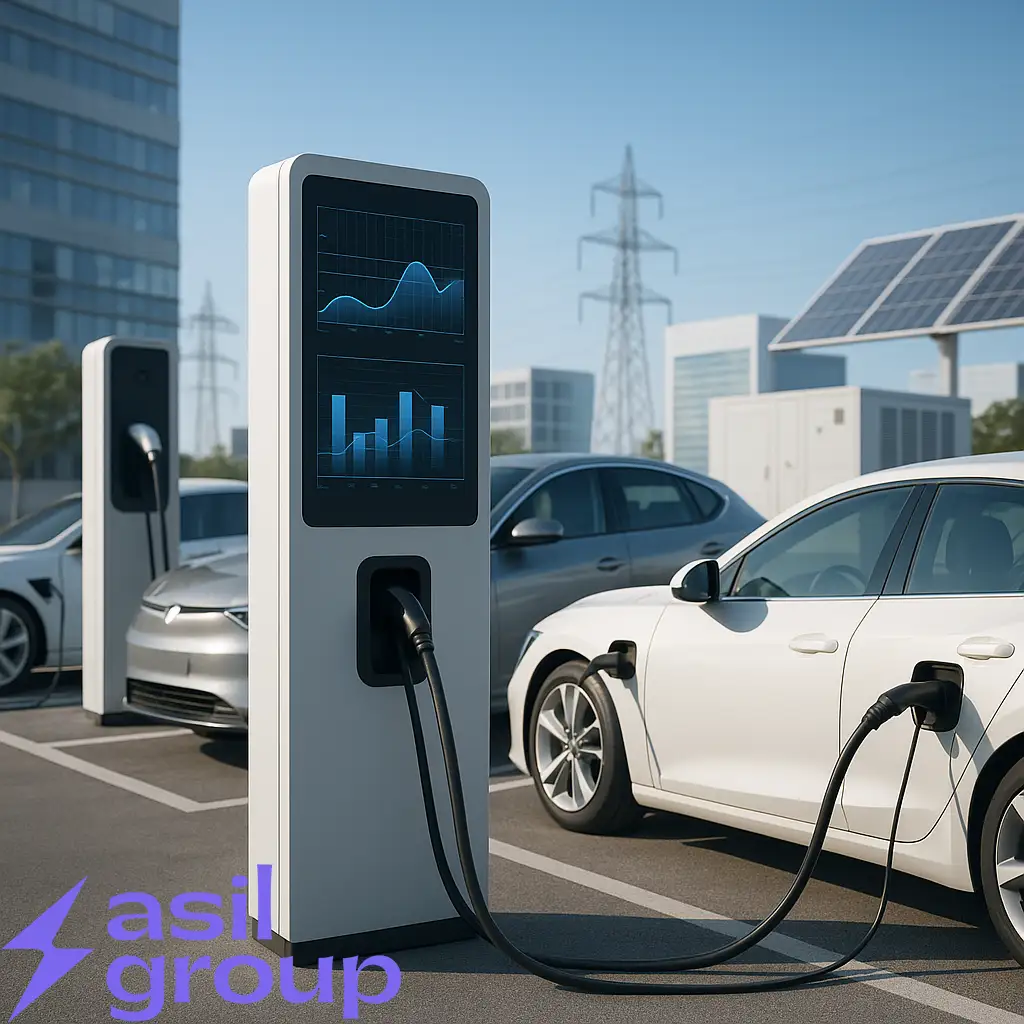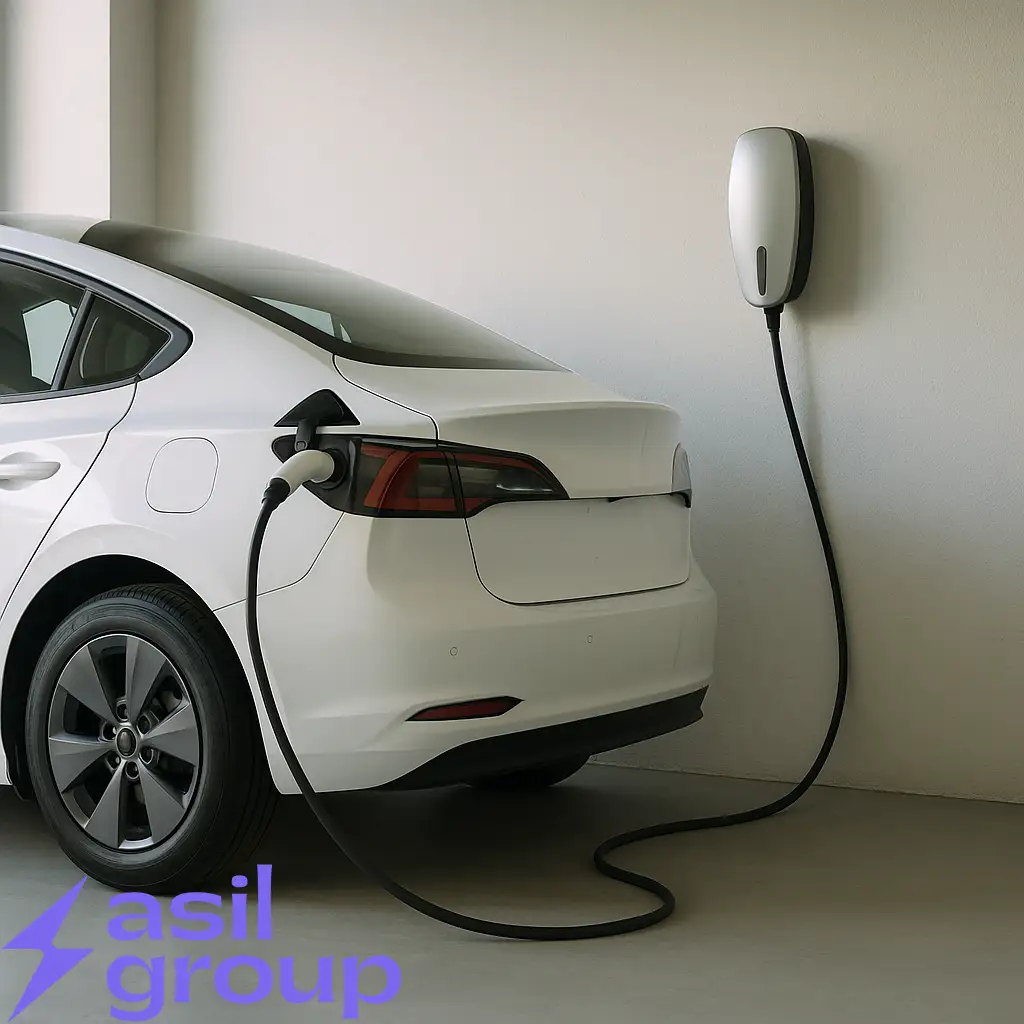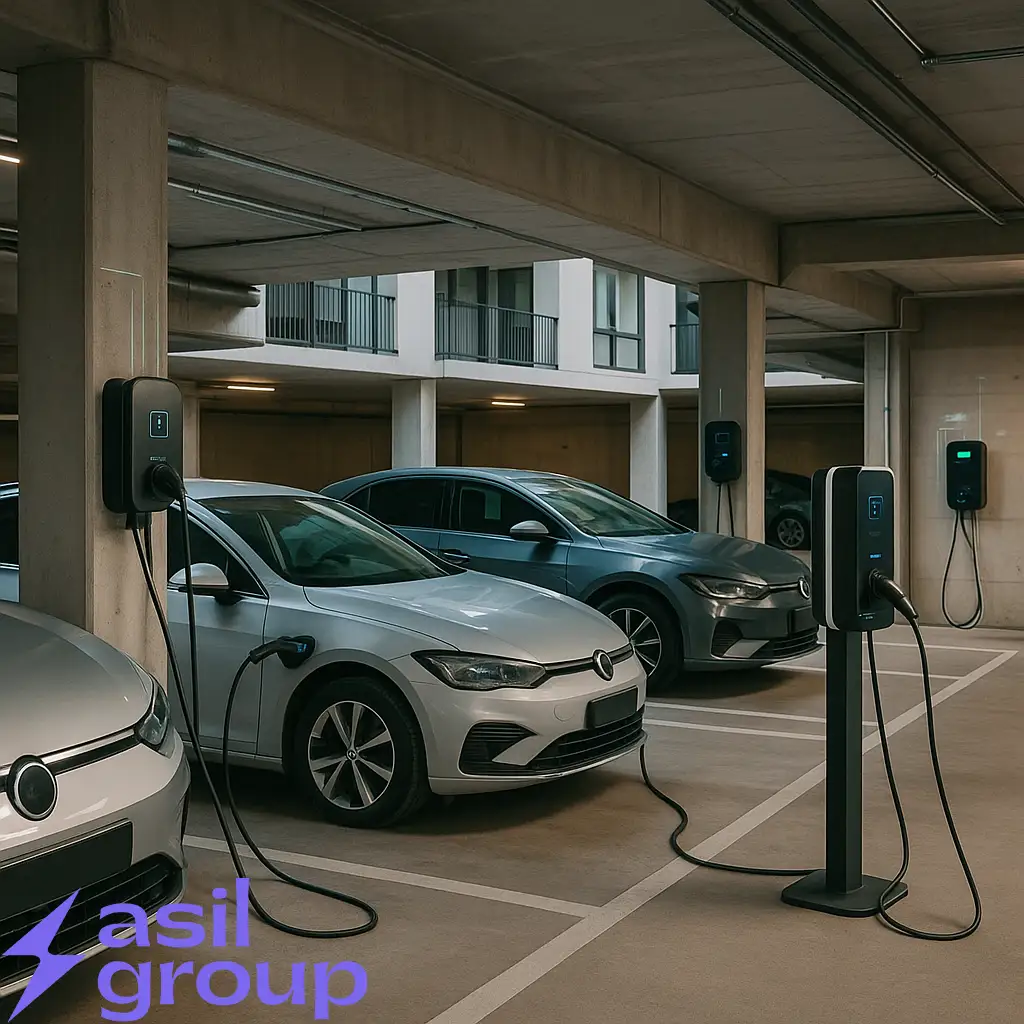
Smart Load Management in EV Charging Networks
Back to all posts As electric vehicle (EV) adoption accelerates globally,

As electric vehicles (EVs) become more popular, many EV owners want home charging stations. A home EV charger offers convenience, cost savings, and ensures your vehicle is ready every morning. This article from Asil Group explores home charging station installation, types of chargers, and their benefits.
Convenience: A home charging station removes the need to rely on public charging stations. You can charge your vehicle overnight or during off-peak hours, ensuring a full battery each morning.
Cost Savings: Charging your EV at home is cheaper than using public charging stations. Residential electricity rates, especially during off-peak hours, are usually lower than public charging costs. Many utility companies offer special rates for EV owners.
Increased Property Value: Having a home charging station can boost your property’s value. As more people switch to electric vehicles, homes with charging stations become more attractive to buyers.
Home chargers fall into two categories: AC chargers and Wallbox chargers. Both offer unique benefits and can fit your specific needs.
Assess Electrical Capacity: Make sure your home’s electrical system can handle the charger. An electrician can check your electrical panel and upgrade it if needed.
Choose the Right Location: Install the charger in a convenient spot, like a garage or near a driveway, where the EV can be easily plugged in. For outdoor setups, consider weatherproofing measures to protect the charger.
Obtain Necessary Permits: Check local building codes and permit requirements for installing EV chargers. Some areas may have specific rules. Working with a licensed electrician can help ensure you meet all local codes and regulations.
Install the Charging Station: After checking the electrical capacity, choosing a location, and getting permits, it’s time to install the charging station. A professional electrician can handle the installation, ensuring everything is set up safely and correctly.
Charging Needs: Think about your daily driving habits to determine the necessary charging speed. For shorter commutes, a standard AC charger may be enough, while longer distances may need a Wallbox charger.
Vehicle Compatibility: Make sure the charger is compatible with your vehicle’s charging capabilities. Some EVs can use higher power levels offered by Wallbox chargers.
Smart Features: Many modern EV chargers come with smart features like Wi-Fi connectivity, mobile app integration, and scheduling capabilities. These features provide added convenience and control over your charging sessions.
Installing a home EV charging station is a practical and cost-effective solution for EV owners. By understanding the benefits, types, and installation steps, you can make informed decisions and get the most out of your charging setup.
Asil Group supports the shift to electric vehicles by providing high-quality EV chargers and installation services. By choosing the right EV charger and ensuring proper installation, you can enjoy reliable and efficient home charging, helping create a seamless and sustainable electric vehicle experience.

Back to all posts As electric vehicle (EV) adoption accelerates globally,

Back to all posts As electric vehicles (EVs) become more popular,

Back to all posts As electric vehicles (EVs) become more common,

Back to all posts As electric vehicle (EV) adoption accelerates globally,

Back to all posts As electric vehicles (EVs) become more popular,
Asil Group offers cost-effective and eco-friendly EV transportation solutions. We focus on convenience with AC chargers, DC fast chargers, and Wallbox chargers, serving premium locations and enhancing quality of life with smart, sustainable EV charging.
Asil Group offers cost-effective and eco-friendly EV transportation solutions. We focus on convenience with AC chargers, DC fast chargers, and Wallbox chargers, serving premium locations and enhancing quality of life with smart, sustainable EV charging.
Asil Group offers cost-effective and eco-friendly EV transportation solutions. We focus on convenience with AC chargers, DC fast chargers, and Wallbox chargers, serving premium locations and enhancing quality of life with smart, sustainable EV charging.
Phone: +98 21 22221422
Email: [email protected]